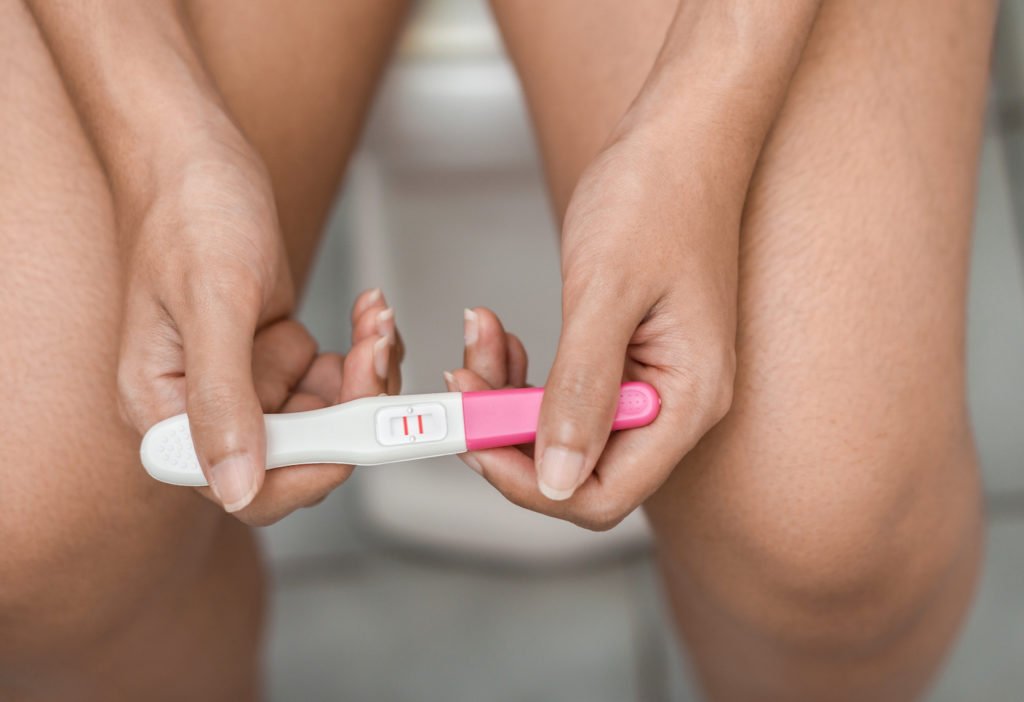On November 8, 2022, California voters passed Proposition 1, which codified a woman’s right to an abortion in the state constitution.
Abortion was already legal under California state law, but Proposition 1 makes this right even stronger. It was also a direct response to the United States Supreme Court overturning Roe v. Wade on June 24, 2022 – eliminating the federal constitutional right to abortion.
California law does place some limitations on when a pregnant woman can terminate her pregnancy. Specifically, a woman can get an abortion up until her fetus becomes viable.
Plus, only qualified medical providers are allowed to perform legal abortions. If an abortion is performed outside the legal parameters, it can lead to criminal charges.

In California, women have a fundamental right to have an abortion. There are limitations, though.
1. What is an abortion?
Abortion is a medical termination of a pregnancy. An abortion procedure ends the life of the fetus and does not produce a live birth. 1 2
2. Does California law place limitations on abortion rights?
Abortion laws in California grant women a fundamental right to terminate their pregnancies. There are limitations to abortion access and reproductive freedom, however.3
The right to abortion care is absolute in the state under two conditions. These are when:
- the fetus is not yet viable, or
- the procedure is necessary to protect the life or health of the mother.4
Once the fetus becomes viable, though, a woman’s right to abortion becomes more limited.5 Upon viability, abortion as a reproductive right is only legal when necessary for the life or health of the mother.
Moreover, only qualified medical professionals may perform abortions. This is true even if the fetus is viable.6
In addition, coroners may not hold an inquest following a fetal death whether or not drugs are the suspected cause of a stillbirth. Police cannot aid out-of-state abortion investigations. Plus, insurance companies cannot charge co-pays or deductibles for abortion care.7
Abortion reproductive health rights are far stronger in California than in some other parts of the country.
3. How does Roe v. Wade being overturned affect California abortion rights?
On June 24, 2022, the U.S. Supreme Court overturned Roe v. Wade, which recognized that women have a constitutional right to abortion.8 But overturning Roe does not affect a woman’s right to abortion care in California. Unlike in many other states, there is no trigger law in California that bans abortion upon Roe being overturned.
Note that since abortion will be outlawed in several other states, women from those states may flock to “sanctuary states” such as California where abortion remains legal. This could greatly increase wait times to get abortion care until supply catches up to demand.
A few weeks before Roe was overturned, Governor Gavin Newsom signed a bill mandating state-licensed health insurers to cover abortion costs in total. The same day Roe was overturned, a law took effect protecting abortion providers from civil liability when treating women from states where abortion is illegal or restricted.
More enhancements to abortion laws are currently in the works that will help increase the number of abortion providers and provide cost assistance to out-of-state patients and the uninsured. On November 8, 2022, Californians voted to enshrine abortion rights in the state constitution (as opposed to just statutes or case law), thereby making the rights even stronger.9

Only licensed doctors can perform surgical abortions in California.
4. How late can you have an abortion in California?
There is no strict cut-off date as to when a pregnancy may be terminated. But absent special circumstances, abortion services cannot be performed once the fetus becomes viable. By definition, a fetus becomes viable if it is likely to sustain survival outside of the uterus. It has to be able to survive without extraordinary medical measures.10
Doctors determine whether a given fetus is viable. They make this decision on a case-by-case basis.11
Typically, a fetus becomes viable around the 23rd week of pregnancy. Doctors also consider a fetus to be viable once it weighs at least 500 grams.12
5. Who is allowed to perform abortions?
Not all medical professionals can provide a surgical abortion in California. They must have a valid medical license. That license must not have been been revoked or suspended. Otherwise, it would be an illegal abortion.13
Abortions by medication (medication abortion) can be provided by a wider range of healthcare professionals, including:
- Licensed nurses and nurse practitioners,
- Nurse midwives, and
- Physician’s assistants.14
These abortions by medication need to happen early, however. These health services can only be conducted in the first trimester of pregnancy.15
An employer cannot require medical professionals to perform an abortion. Doctors also cannot be penalized for refusing to provide one. Healthcare facilities can also refuse to provide abortion medical care without facing legal repercussions.16

Underage women may get an abortion without parental consent.
6. Can underage women get an abortion?
Yes. Underage women have the same right to an abortion as adult women do. It is unconstitutional to require them to get parental consent.17
7. Can I legally travel to California for an abortion?
Yes. “Medical tourism” to California for the purpose of obtaining abortion care is currently legal.18
Helpful links
-
- Crisis pregnancy centers
- Women’s Health.gov (information on family planning services, birth control and contraception)
- California Supreme Court
- California Legislature
This page was researched and written by our California criminal defense lawyers.
Legal References:
- California Health and Safety Code 123420 – 123473.
- California Health and Safety Code 123464(a). (“‘Abortion’ means any medical treatment intended to induce the termination of a pregnancy except for the purpose of producing a live birth).
- California Health and Safety Code 123462(b). (“Every woman has the fundamental right to choose to bear a child or to choose and to obtain an abortion, except as specifically limited by this article”).
- California Health and Safety Code 123466.
- California Health and Safety Code 123468(b).
- California Health and Safety Code 123468(a) & 123450(a).
- Assembly Bill 2223 (2022); Assembly Bill 1242 (2022); Melody Gutierrez, Newsom signs 13 abortion protection and reproductive health bills, LA Times (September 27, 2022). Senate Bill 245 (2022); Adam Beam, Gov. Newsom signs law that makes abortions cheaper, LA Times (March 23, 2022).
- Roe v. Wade, (1973) 410 U.S. 113. See Dobbs, State Health Officer of the Mississippi Department of Health, et al. v. Jackson Women’s Health Organization et al.
- Allison McCann and Taylor Johnston, Where Abortion Could Be Banned Without Roe v. Wade, NYTimes (May 3, 2022). Melody Gutierrez, California constitutional amendment securing abortion, contraceptive rights goes to voters, LATimes (June 27, 2022). SCA 10. Melody Gutierrez, What happens in California with Roe vs. Wade now dead? Los Angeles Times (June 24, 2022). Melody Gutierrez, Proposition 1 abortion rights ballot measure passes, Los Angeles Times (November 8, 2022).
- California Health and Safety Code 123464(d).
- Same.
- See, for example, Barragan v. Lopez, (Cal. App. 2007) 156 Cal.App.4th 997.
- California Health and Safety Code 123468(a) and California Business and Professions Code 2253(b)(1).
- California Business and Professions Code 2253(b)(2). SB-1375 (2022)(permits nurse practitioners to more easily operate independently of a physician”).
- Same.
- California Health and Safety Code 123420.
- American Academy of Pediatrics v. Lungren (1997) 16 Cal.4th 307.
- Ava Sasani, Is it legal for women to travel out of state for an abortion? New York Times (June 24, 2022)(“In his concurring opinion, Justice Brett Kavanaugh suggested that women who travel to neighboring states to receive an abortion would be protected by the constitutional right to interstate travel.”).
